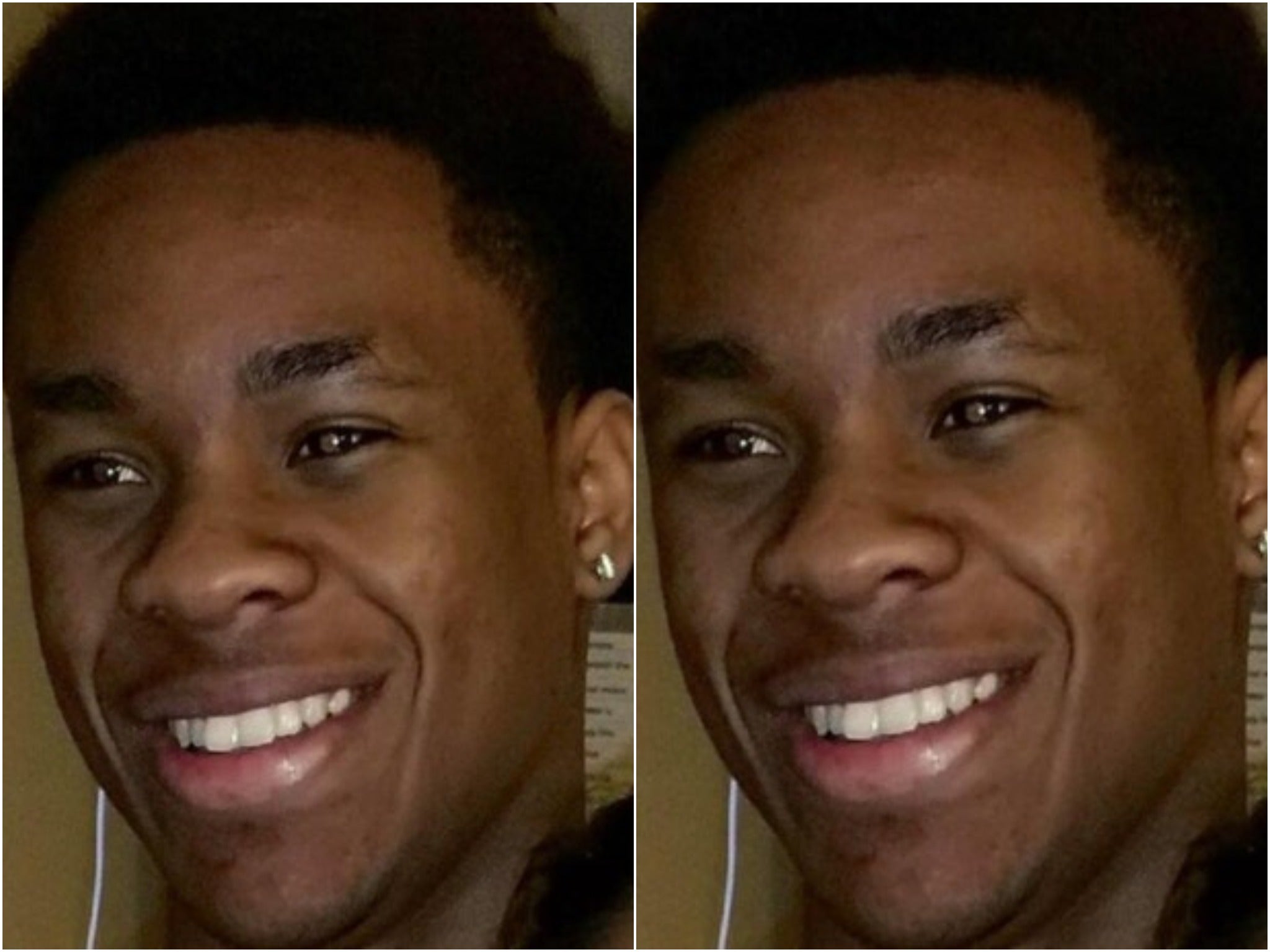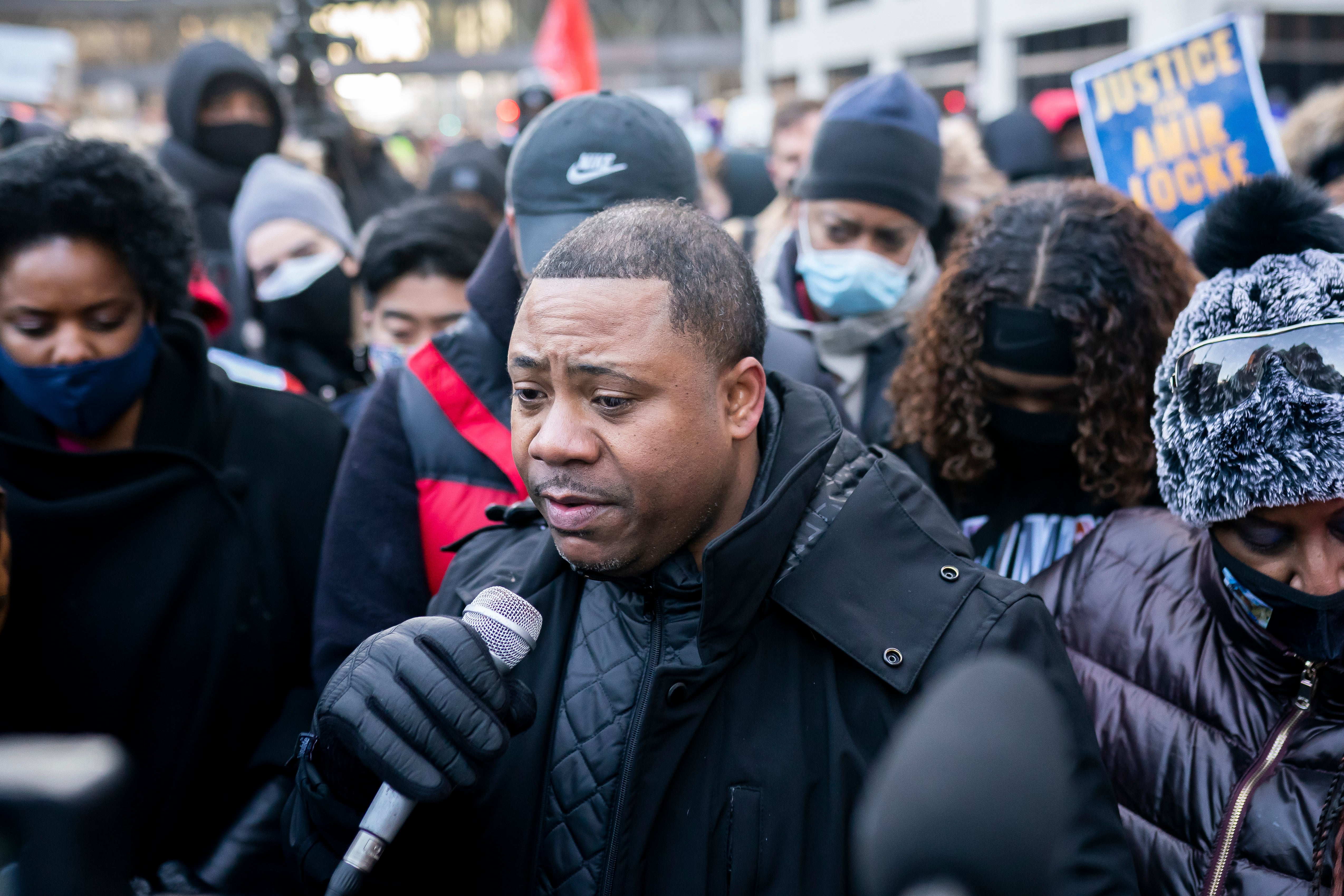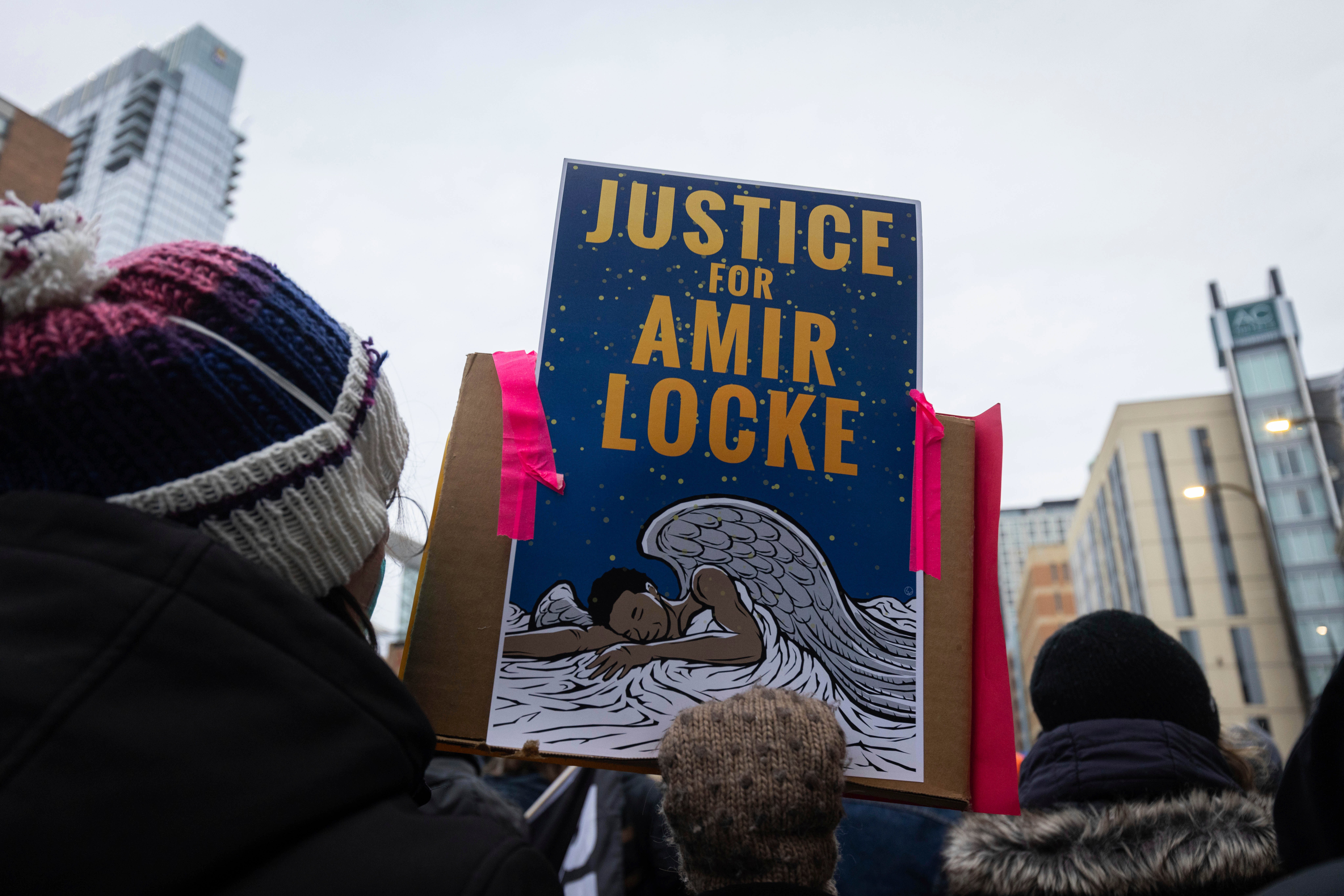Judge in Derek Chauvin trial likely signed no-knock warrant leading to police killing of Amir Locke
‘The Court cannot comment whether Judge Cahill specifically signed that application,’ spokesman says
The judge in the trial of Derek Chauvin was working when the no-knock warrant leading to the fatal police shooting of Amir Locke was signed.
Judge Peter Cahill, the judge presiding over the George Floyd murder trial, was on duty as the signing judge last week, which means that he would have been reviewing and approving search warrant applications, according to a statement from a spokesman at the Hennepin County District Court.

“The warrant granting authority to search the apartment is not publicly available so the Court cannot comment whether Judge Cahill specifically signed that application,” spokesman Matt Lehman said, according to KARE 11. “Judge Cahill cannot comment on this particular application or any application for a search warrant because the Minnesota Code of Judicial Conduct (Rule 2.10) prohibits judges or Court staff from commenting on active or pending cases.”
Judge Cahill entered the spotlight last year when he presided over the trial of Chauvin, the former Minneapolis police officer who was sentenced to 22.5 years in prison for the murder of Mr Floyd, an unarmed Black man, that ignited nationwide racial justice protests.
On 25 May 2020, Chauvin, a white officer, knelt on Mr Floyd’s neck for more than nine minutes as he was facedown on the ground with his hands cuffed, saying that he couldn’t breathe.
Mr Locke, 22, was shot dead by Minneapolis police in a no-knock raid at 6.48am on Wednesday.
The office of Minnesota Attorney General Keith Ellison, a Democrat, prosecuted white former Brooklyn Center officer Kim Potter who was found guilty of manslaughter in the death of Black driver Duante Wright. Mr Ellison said his office would take part in a review of Mr Locke’s death.
Hundreds of people protested in the streets of Minneapolis on Saturday, with demonstrators demanding that no-knock search warrants be banned.

The loud but peaceful crowd chanted the name of Mr Locke, three days after he was killed within 10 seconds of police entering an apartment where he was sleeping on the couch.
In body camera footage released by the office of Minneapolis mayor Jacob Frey, Mr Locke can be seen holding a gun, which his family say he had a legal permit for.
The no-knock search warrant, which allows officers to enter a home without announcing their presence, was issued in relation to a homicide investigation conducted by the police department in St Paul, Minneapolis’ twin city.
The chief of police in Minneapolis has confirmed that Mr Locke was not named in the warrant, and it’s unclear if he’s connected to the investigation.
Chief Amelia Huffman told reporters on Thursday that the county attorney’s office is looking into the shooting that killed Mr Locke. She also said that the video showed that Mr Locke had pointed his weapon in the direction of officers.
Protesters argued that Mr Locke had the right to have his weapon and wasn’t afforded the chance to disarm himself and cooperate with the police during the quick raid.
The at least 500 demonstrators demanded that the police chief and mayor resign, as well as that the officers involved in the shooting be dismissed from the department, according to The Guardian.
Speakers insisted that more be done to combat police violence against Black people, arguing that they are targets of extreme law enforcement tactics.

Mayor Jacob Frey ordered a moratorium on no-knock raids on Friday to “ensure” the “safety of both the public and officers until a new policy is crafted”.
Karen Wells, the mother of Mr Locke, has hired lawyer Ben Crump, who also represented the family of Mr Floyd.
Mr Crump said in a statement that as in “the case of Breonna Taylor, the tragic killing of Amir Locke shows a pattern of no-knock warrants having deadly consequences for Black Americans. This is yet another example of why we need to put an end to these kinds of search warrants so that one day, Black Americans will be able to sleep safely in their beds at night”.
The footage was released following outrage at the incident, with some comparing it to the deadly shooting of Ms Taylor, who was shot and killed during the execution of a no-knock warrant in Louisville, Kentucky, in March 2020.
The video shows Mr Locke on a couch covered by a blanket and holding a gun in the moments before he’s shot by Minneapolis officers.
In the footage, several officers enter the apartment using a key, shooting Mr Locke within 10 seconds of entering the home.
When they enter the apartment, the police officers yell “police – search warrant” several times as well as “hands” and “get on the ground”.
One of the officers kicks the couch, and Mr Locke starts to come out from under the blanket holding a firearm. The police officers then fire three rounds, Mr Locke falls to the floor and the video ends.
The bodycam footage was released about 36 hours after the shooting, as the public called for transparency from the authorities in what happened to Mr Locke.
Mr Locke had two wounds in his chest and one in his right wrist, an incident report said.
Mayor Frey said the body camera video “raises about as many questions as it does answers” and that the city was working to find answers “as quickly as possible and in transparent fashion”. The matter is being investigated, including by the state Bureau of Criminal Apprehension.
“Approximately nine seconds into the entry, officers encountered a male who was armed with a handgun pointed in the direction of officers. At one point, shots were fired, and the adult male suspect was struck. Officers immediately provided emergency aid and carried the suspect down to the lobby to meet paramedics,” police said in a press release.




